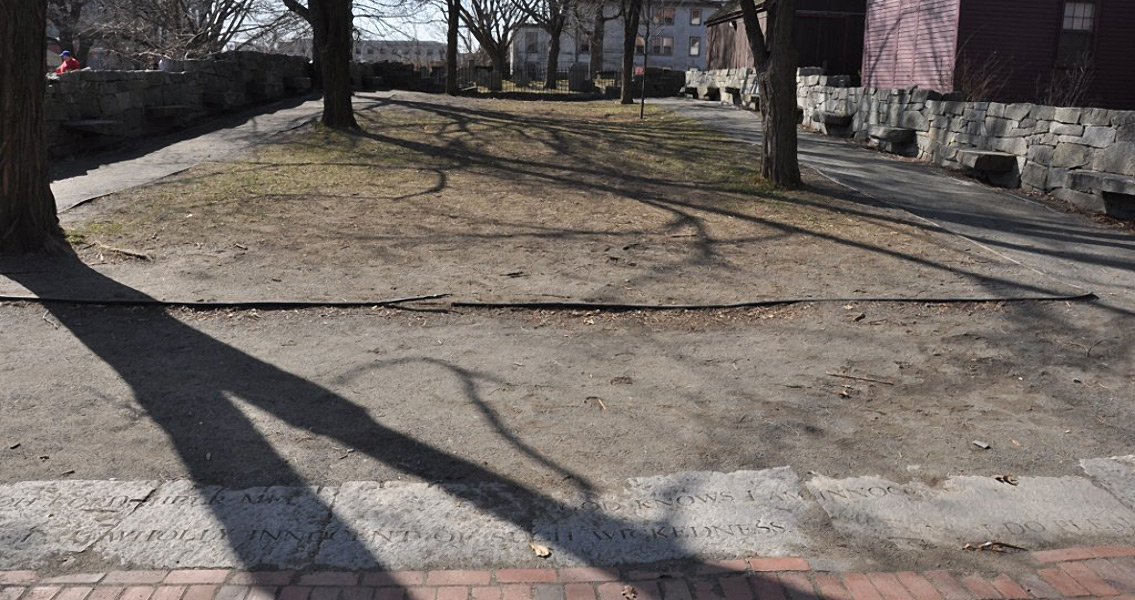<![CDATA[Charles Wentworth Upham's two volume work on the Salem Witch Trials: 'Salem Witchcraft, with an Account of Salem Village', is a fascinating, mid-nineteenth century analysis of a dark moment in American history. The volumes are unique, not just because of the rigorous use of primary sources in their compilation, but because they were some of the first historical works to consider causes beyond simple religious fanaticism. The witch trials themselves occurred in 1692 in the village of Salem, Massachusetts. The deluge of hysteria had started that February, when a group of young girls from the village claimed to be possessed by the devil, and accused several local women of witchcraft. A special court was convened in Salem, and the first 'witch' was hanged in June. By the time the trials came to an end in September 1692, 150 people had been tried for witchcraft, and 19 executed. One possible explanation for the rapid escalation is that those accused of witchcraft would often admit the charge, and then accuse others in an attempt to escape the harshest punishments. Such displays of supernatural paranoia were not unusual in this period, in both Europe and North America. Since the fourteenth century it had been believed that the devil granted mystical powers to people so they could harm others. Ailments such as fits, hallucinations or convulsions were considered to be signs of satanic possession, and throughout Europe there were examples of execution and punishment for charges of witchcraft. Such concerns had migrated to the North American colonies with the Puritans, and were possibly amplified by the difficult living conditions in Massachusetts in the late seventeenth century. Upham's account is so important because of the broader analysis of supernaturalism it presented. He made clear in the preface to the first edition that his work was much more than a simple documentation of a strange time in Massachussetts history: "...the subject belongs not only to theology and moral and political science, but to physiology, in its original and proper use, as embracing our whole nature; and the facts presented may help to conclusions relating to what is justly regarded as the great mystery of our being,—the connection between the body and the mind." Upham strove to understand every possible cause of the Salem Witch Trials, from society as well as individuals. It is in the first chapter that Upham provided the broader analysis of supernaturalism that makes the work so unique. A detailed history of mankind's complex, paranoid relationship with the supernatural is explained. Upham demonstrated how deeply rooted he thought this paranoia was by presenting the story of a Roman farmer, Furius Cresinus, who was accused of using magic arts. Upham concluded that these accusations were inspired by Cresinus' superior "skill and success with which he managed his agricultural affairs." Feelings of envy among his contemporaries had driven them to make irrational conclusions about the reasons behind his achievements; "charging him with attracting and drawing off the productions of their fields into his own by the employment of certain mysterious charms." Later in the first volume the historic relationship between supernaturalism and Christianity is analysed. Examples are given of innovators from the Middle Ages who were denounced by the Catholic church and punished because their accomplishments were interpreted as supernatural occurrences. In the thirteenth century for instance, the scientist Roger Bacon was denounced by the pope and received two long prison sentences for his pioneering work in astronomy, optics and chemistry. The Salem Witch Trials were a fascinating occurrence in American history. Upham's analysis is so pivotal because it uses the trials as a starting point to look at the origins of the irrationalities that breed a fear of the supernatural. Upham acknowledged that the events in Massachusetts had been a symptom of the religion fueled paranoia of the time, but he also considered the broader history of supernaturalism, removing it from a purely religious discourse. Image courtesy of Wikimedia commons user: Magicpiano]]>
Salem Witchcraft, with an Account of Salem Village
